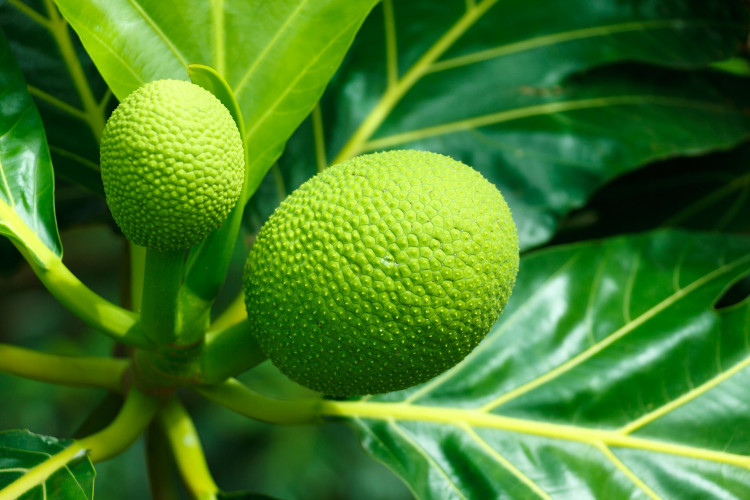A fruit commonly found in tropical countries is getting the nutritional thumbs-up from a research team in British Columbia.
Breadfruit, which in tropical and South Pacific countries grows in abundance, has long been a staple in many people's diets. As UBC Okanagan researcher Susan Murch notes, the fruit can be consumed when ripe, or it can be dried and ground into flour and repurposed into different kinds of meals.
"Breadfruit is a traditional staple crop from the Pacific islands with the potential to improve worldwide food security and mitigate diabetes," says Murch, a chemistry professor in the newly-created Irving K. Barber Faculty of Science. "While people have survived on it for thousands of years there was a lack of basic scientific knowledge of the health impacts of a breadfruit-based diet in both humans and animals."
Breadfruit can be picked, dried, and ground into flour that is gluten-free. Researchers had four breadfruits from the same tree in Hawaii for the research, sent to UBC Okanagan's Murch Lab. The research exploring the digestion and health effects of a breadfruit-based diet was led by doctoral student Ying Liu.
The few studies conducted on the food were to analyze the breadfruit's glycemic index - it is similar to several traditional staples such as wheat, cassava, yam, and potatoes with a low glycemic index.
The team conducted a series of experiments that could provide evidence on the results of a breadfruit-based diet fed to mice and also an enzyme digestion model, using flour ground from dehydrated breadfruits.
The researchers decided that in the enzyme digestion model, breadfruit protein was found to be easier to digest than wheat protein. And the growth rate and bodyweight of mice given the breadfruit diet is slightly higher than the normal diet-fed mice.
Liu noticed that mice had a slightly higher daily intake of water on the breadfruit diet relative to mice on the wheat diet. And at the conclusion of the three-week experiment, between the breadfruit and wheat diet-fed mice, the body composition was identical.
Data revealed that a breadfruit diet does not inflict any toxic effect as the first total, fully-designed breadfruit diet analysis. According to researchers, fundamental knowledge of the health effect of breadfruit digestion and diets is important and imperative for the potential establishment of breadfruit as a staple or as a usable product.
The study suggests that the use of breadfruit is healthy and sustainable and may allow inroads into nutritional production for many communities worldwide.






